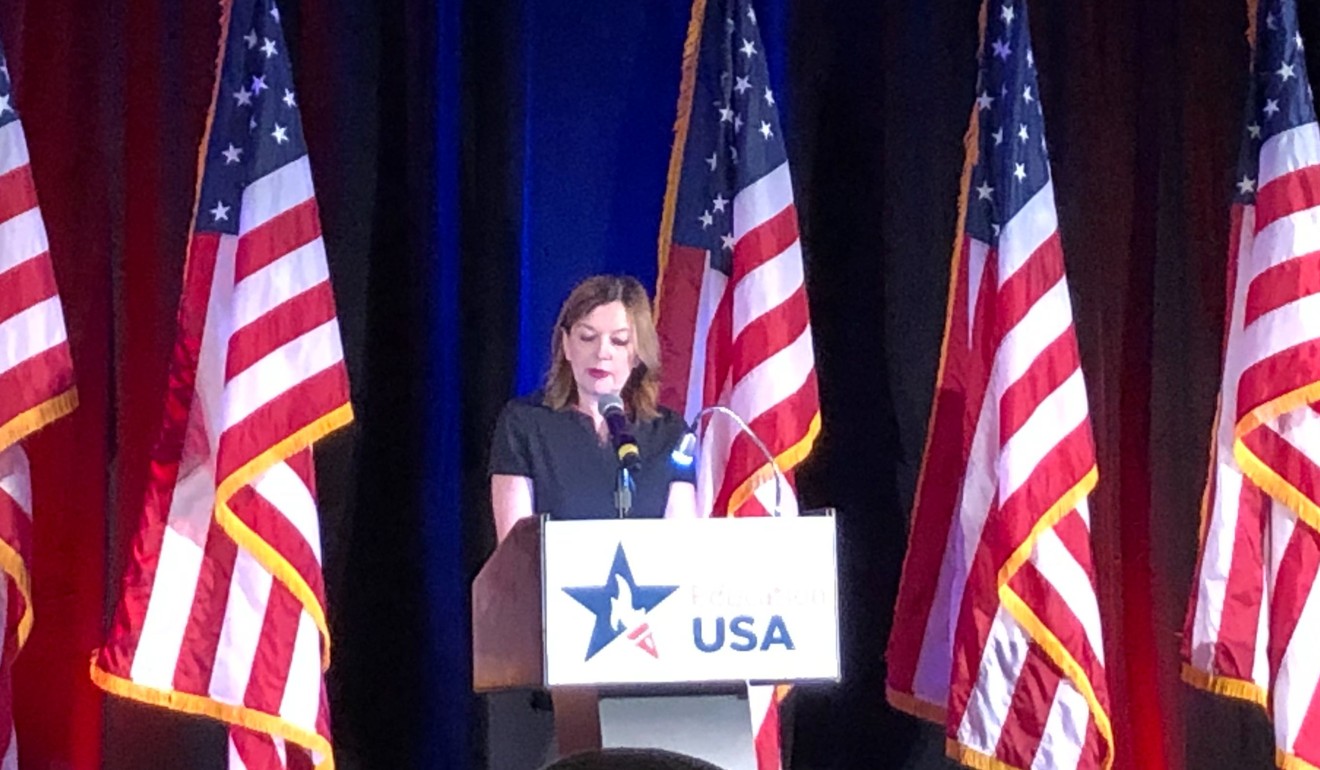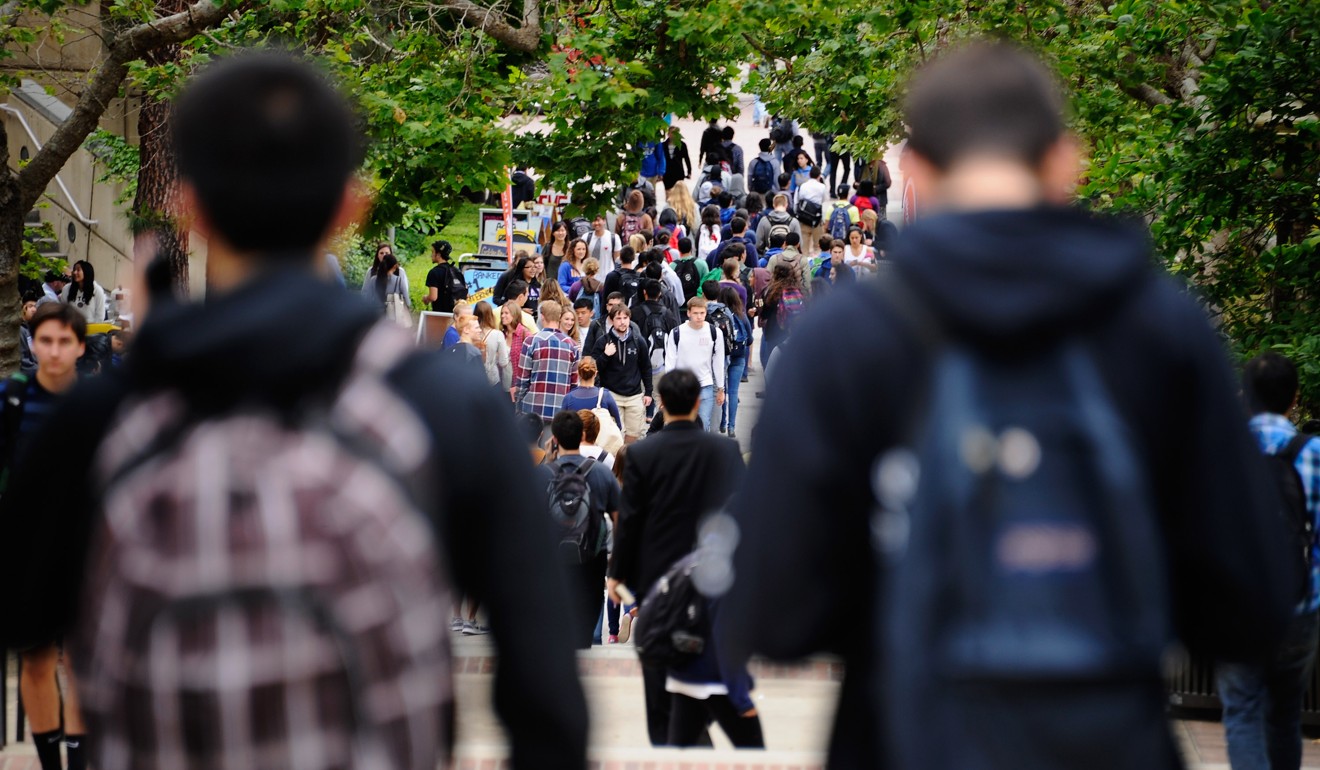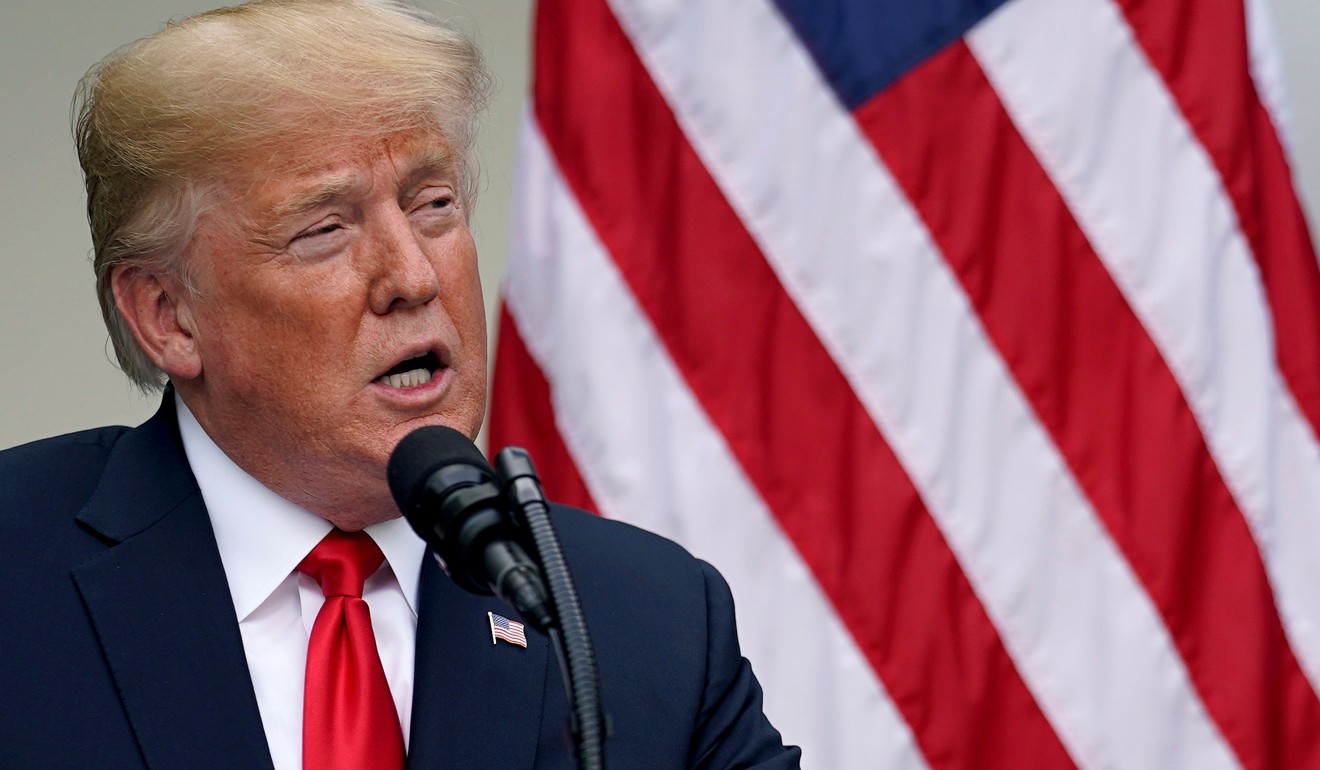
Chinese students are welcome in America, US education official Marie Royce says, calling China’s negative reports propaganda
- Marie Royce, the assistant secretary of state for educational and cultural affairs, says ‘US higher education is increasingly accessible to Chinese students’
- The number of Chinese student visa applications refused has declined in each of the last four years, she tells Washington forum

A US education official on Tuesday accused China’s state-controlled media of painting an “inaccurate picture” of the hardships Chinese students are said to face living and studying in the US, stressing that Chinese students are welcome in America.
“The United States continues to admit qualified Chinese students for study at US colleges and universities,” Marie Royce, the assistant secretary of state for educational and cultural affairs, told the annual EducationUSA Forum in Washington.
“Contrary to what you might have heard from the government of China, the number of Chinese student visa applications refused has declined in each of the last four years,” Royce told an audience of 500 international education professionals from US universities and colleges.
“This demonstrates that US higher education is increasingly accessible to Chinese students.”

Her remarks suggested that the US government is striving to play down fears of growing hostility towards Chinese academics and students working and studying in the US after some scholars complained about scrutiny from the US government over their ties to Beijing.
In May, Emory University in Atlanta, Georgia, said it had removed two Chinese-American professors with the department of human genetics, Li Xiaojiang and his wife, Li Shihua, for failing to disclosing their ties to institutions in China, an accusation the couple denied.
Some scholars in China also said that their 10-year multiple-entry visas to the US had been revoked by US authorities without explanation.
And in June, China’s Ministry of Education issued a warning about the risks of studying in the US, citing a soaring number of visa rejections.
US President Donald Trump, mindful of these developments, said on the sidelines of the Group of 20 summit in Osaka, Japan in June that he wanted more Chinese students to go to the United States as concern grows about Chinese scholars in American academia.

“We want to have Chinese students [go] to our great schools and great universities,” Trump said. “They are great students and tremendous assets.”
Royce said the Chinese government should be held responsible for giving Chinese citizens “an inaccurate picture” of the United States.
“The state-controlled Chinese media inundates Chinese students with Communist Party-curated content that exaggerates the dangers of living and studying in the United States,” the official said.
“Through Chinese social media, Chinese students continue to view the United States through this distorted lens.”
Such misinformation not only discourages Chinese students in the US from fully engaging with their American and international peers, it also saps the power of American higher education institutions to draw Chinese students, several international student recruiters said on the sidelines of the forum.

Moto Tomita, a regional director for international recruitment at the University of Hawaii at Manoa, said American universities have become the latest casualties of the trade tension between the world’s top two economies.
China’s warning about the risks of studying in the US will have a “big impact on student enrolment,” said Tomita, who projects a 20 per cent decline in Chinese student enrolment at his university for the 2019-2020 school year.
That would be the biggest decline of its kind at the school in 25 years.
A plunge in enrolment at US schools by Chinese students would have an impact on the American economy, based on their past spending behaviour.
Chinese students contributed more than US$15 billion to the US economy in 2018. More than 360,000 Chinese students studied in the US in the 2017-18 school year, making up one-third of the overall international student body in the country.
The number of Chinese students in the US is greater than the combined total of the next seven countries where Chinese students are studying abroad the most, Royce said.
“From a foreign relations standpoint, the friendships that are formed, the values shared, and the networks created, are even more important than the economic contributions of these Chinese students,” the official said.
She urged American universities to double down on their efforts not only to welcome Chinese students to their classrooms, but to ensure they are given opportunities to fully experience America’s culture and communities.
Universities should go beyond typical “welcome orientation” events by encouraging Chinese students to live alongside Americans and join student clubs and organisations, she said.
“Open our classrooms and homes, expose Chinese students to our welcoming culture, eat and live alongside them, foster lifelong connections, and allow them to form their own conclusions about the United States.”